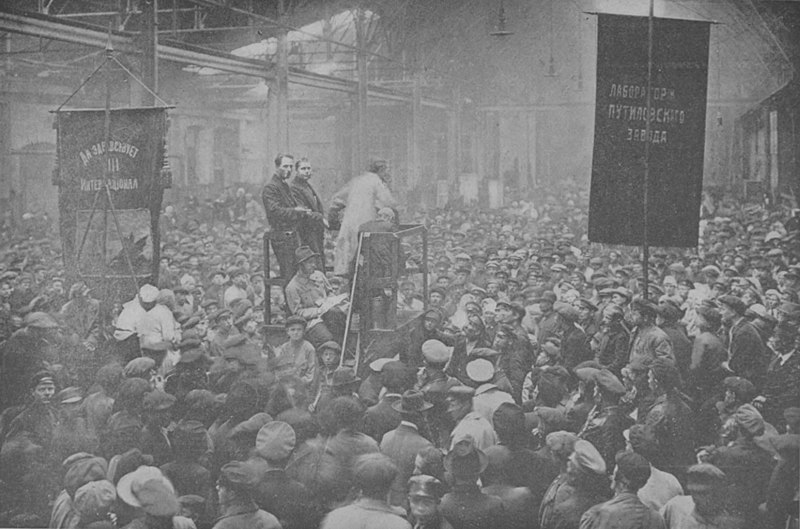
Access ChatPTS here.
***********
The Russian Revolution of 1917 is one of the most significant events of the 20th century and had a profound impact on world history. Here I explain to you from the perspective of the PTS and La Izquierda Diario some key points about this revolution.
Context and Development
The Russian Revolution began in February 1917, when the Tsarist regime, which had ruled Russia for centuries, was overthrown. This event was fueled by a massive uprising of workers in Petrograd, who were fed up with deplorable living conditions and Russia’s participation in World War I. The strikes and demonstrations triggered the abdication of Tsar Nicholas II and the formation of a provisional government headed by political representatives and leaders of capitalist parties. However, this government maintained many unpopular policies, including the continuation of the war.
October: The Taking of Power
In October 1917, the Bolsheviks, led by Lenin and Trotsky, seized power in the insurrection known as the October Revolution. This event was not a coup d’état, as some conservative historians have tried to portray, but the result of a profound mass movement that brought the working class to power through the soviets, councils of workers, soldiers and peasants. The slogan of “bread, peace and land” resonated deeply among the population, who longed for the end of the war, the redistribution of land and the improvement of their living conditions.
Innovations and Achievements
The Russian Revolution brought with it great social and economic transformations. The right to abortion was legalized, homosexuality was decriminalized and progress was made in gender equality, granting unprecedented rights for the time, even in comparison with the most advanced democracies in the West. In addition, reforms were implemented in education, culture and art, promoting mass access to these areas. The soviets, as a form of workers’ democracy, allowed direct and revocable representation of the interests of the exploited majorities.[8],[9],[10]
Treason and Stalinism
Unfortunately, the revolution was betrayed from within due to the consolidation of Stalinism, which deformed the workers’ state and led to a series of crimes and counter-revolutionary policies. This betrayal was facilitated by the isolation of the Russian Revolution and the failure of revolutions in other European countries, which allowed the Stalinist bureaucracy to consolidate power. This bureaucratic degeneration culminated in capitalist restoration at the end of the 20th century.[11],[12],[13]
Legacy and Validity
Despite the Stalinist betrayal, the legacy of the Russian Revolution remains a source of inspiration for the struggles of the working class and oppressed sectors around the world. The revolution demonstrated that it is possible for workers to take control of their destinies and build a society based on justice and equality. Today, in the face of crisis and capitalist barbarism, the lessons of the Russian Revolution remain more relevant than ever.
Source: www.laizquierdadiario.com

